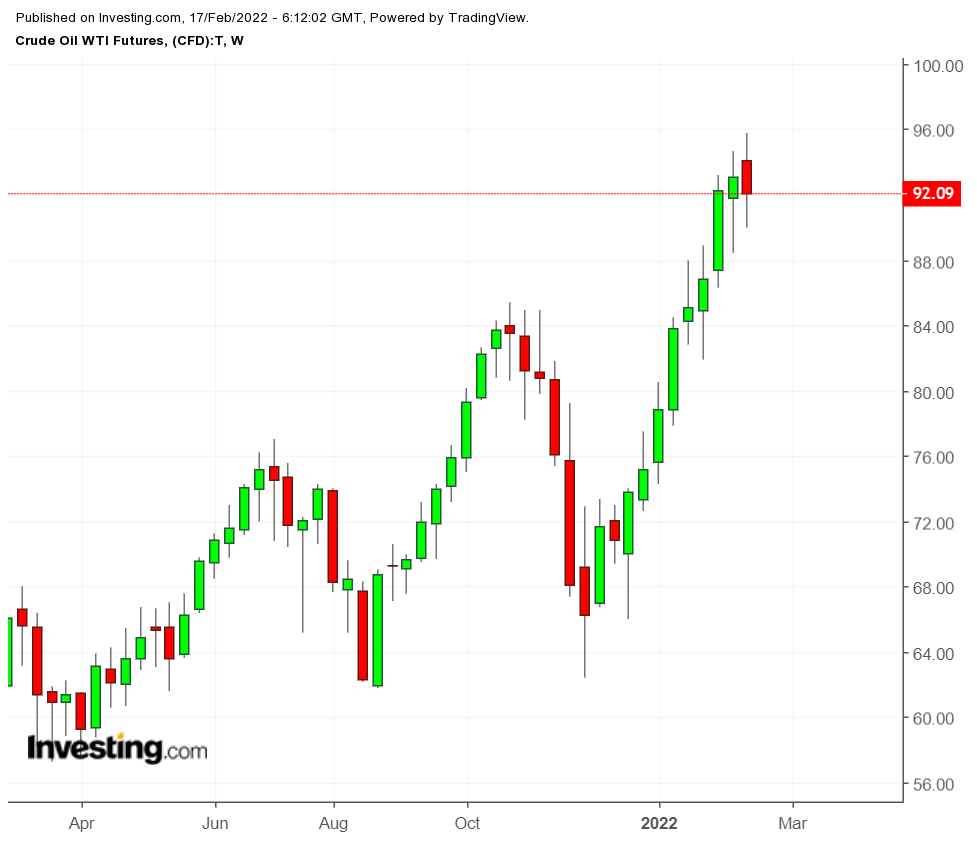Oil prices are higher than they have been in more than seven years, which is generally a good sign for oil companies and the expansion of the industry. However, we are seeing a conundrum in this regard.

With oil prices up at these levels, there should be more and growing exploration and production (E&P), but that's not the case.
According to Amrita Sen of Energy Aspects, the industry needs "at least $520 billion in investment each year" just to keep global production at 100 million bpd. Yet, according to her analysis, the industry is only investing $370 billion.
Why aren’t we seeing more investment and what does this dearth of E&P mean for the market in the long term?
What's Holding Back Exploration & Production
In the U.S., production is 1.6 million bpd lower than it was in January 2020, even though prices are at least $35 per barrel higher and thus more enticing to producers.
The oil rig count is still around 500, compared to the nearly 700 oil rigs in operation pre-pandemic. This indicates that output is not growing all that much despite the potential for greater profit.
Indicators like the Dallas Fed Survey and others have told us that U.S. producers are particularly concerned about investing in production for a variety of reasons at the moment. Some of these reasons are unique to the U.S. situation, but others also impact those operating outside the U.S.
- Regulatory Uncertainty: Federal regulations governing oil and gas production are in flux, especially rules governing emissions, permitting, and leasing. Despite the potential for short-term profits, producers in the U.S. remain anxious about how government policies will impact any investments they make now, especially investments in longer term projects.
- Hesitancy From Financiers: Similarly, banks and investors are unsure of the future vis-à-vis government policy. Many large banks have also been subject to harassment from activists over big investments in oil and gas companies in recent years, and face pressure to divest from the industry as a whole. These pressures and uncertainty de-incentivize risk-taking in the oil and gas industry.
- Environmentalist Positions: With so much uncertainty, oil and gas producers are wary of drawing the ire of the environmentalist movement. This can be a force against any commitments to expand E&P. It is especially strong in European companies where government policies discourage oil and gas producers from engaging in new exploration and production. Many companies, like BP (NYSE:BP), continue to commit more money and investment to non-oil and gas projects even though oil prices are high and crude oil sales and refining remain their largest sources of revenue and profit.
- Share Prices: Oil companies are demonstrating a preference for short-term, high share prices. Since the price of oil began to drop in 2014, oil producers cut back on E&P due to low prices. They also cut investments in efforts to protect their own share prices. Now that oil prices are higher again, producers could reinvest the revenue in E&P (with the accounting benefits and tax breaks that provides), or they could use the profits to prop up their share prices via dividends and excellent earnings numbers. Much of the industry has chosen the latter, as it has become preoccupied with high share prices and dividends in the present and immediate future, at the expense of E&P. (This also is not particular to U.S. producers only.)
What Lack Of E&P Means For The Energy Market And Industry
For the market, muted production growth means less worry about oversupply in the near future. In fact, in the long term—years from now—we might see a significant supply shortage if producers don’t start investing more in E&P soon.
For the industry, restrained E&P means that the prices of most equities will be high as long as the price of oil is high, but many producers will suffer in upcoming years if they do not find a way to produce. In the years to come, those producers that have invested in E&P, or that can acquire assets ready for production, will have a huge advantage over those that were unprepared for the future.
